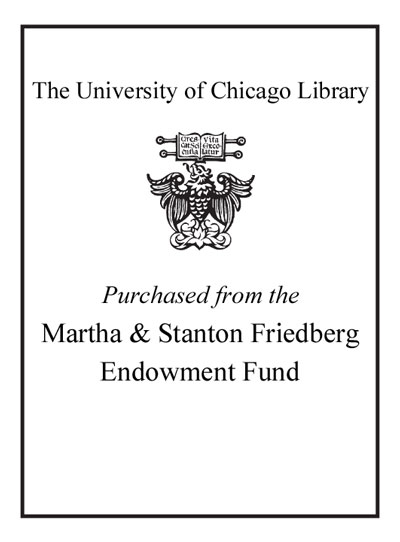Review by Choice Review
Eagleton (Univ. of Lancaster, UK) opens with a critique of those who have attempted to define literature based on the concept of essences--a set of features that all literary works have in common and without which the category of fiction has no meaning. He then argues that "Wittgenstein's theory of so-called family resemblances" provides an alternative to the all-or-nothing approach. He identifies five facets of literature--"the fictional, moral, linguistic, non-pragmatic, and normative"--in order to demonstrate that the facets are "porous, unstable, fuzzy at the edges, and tend to merge into their opposites or into each other." In chapter 4 he moves to a discussion of the philosophy of fiction, and in "Strategies," the fifth and concluding chapter, he shifts from literature to "theories that investigate it." He asserts that the concept of "strategy" can shed light on many of the theories. "Since this is relevant to so many kinds of literary theory, we have here what with suitable modesty might be called a Theory of (Almost) Everything, a literary equivalent to the physicist's elusive TOE." The book is witty and informative. Summing Up: Recommended. Graduate students, researchers, faculty. W. F. Williams Slippery Rock University of Pennsylvania
Copyright American Library Association, used with permission.
Review by Publisher's Weekly Review
What, exactly, is literature? In his latest, Eagleton returns to familiar questions about the nature of literature and theory, extending and refining the thinking of his early landmark work, Literary Theory: An Introduction. In wry, thrifty prose, he surveys a range of theoretical positions in order to ponder a larger question about "whether there really are such things as common natures in the world." While he defends the major claim of his earlier work (that literature "has no essence whatsoever"), he brings to bear a variety of sources (such as scholastic debates between realism and nominalism and Wittgensteinian "language-games") in order to find a middle ground between the claim that literature has no essence and that the category of literature-indeed, the categorical impulse itself-still matters. He applies similar techniques in thinking about the nature of fiction, which, "despite its limits, can disclose possibilities beyond the actual." The book's last essay asks whether approaches to literature-like semiotics, feminism, and Marxism-possess a common nature and, if so, what that nature looks like. In order to address this question, Eagleton turns to "strategies," which he defines as ways of organizing reality capacious enough to allow for the complexities of "frictions and conflicts." These essays are a fascinating and often compelling expansion of Eagleton's oeuvre, though they may be most useful to those already familiar with the author's positions and theoretical biases. (May) © Copyright PWxyz, LLC. All rights reserved.
Review by Library Journal Review
Eagleton (English literature, Univ. of Lancaster, UK; Literary Theory: An Introduction) has changed his mind about whether literature can be defined. He previously thought it could not be, but he now thinks his former view rested on the dubious nominalist assumption that universals are mere words. Now he seeks to assess literature as written, read, and judged across the spectrum of its active life. Eagleton suggests a number of characteristics common to literary works: literature is "fictional, valuable, richly figurative, non-pragmatic and morally significant." These characteristics are not invariably present in every literary work and, when present, they vary historically and culturally. Eagleton has here been influenced by Wittgenstein's notion of family resemblances, which, following Stanley Cavell, he takes to be a search for essences rather than a rejection of definition altogether. After discussing each of the characteristics, Eagleton asks whether theories of literature, such as structuralism, semiotics, and phenomenology, have common features. Here again he finds useful the notion of family resemblances. He suggests that theories, like works of literature itself, are strategies to try to understand a world that resists such understanding. VERDICT Eagleton has a remarkable ability to explain difficult ideas clearly. This book is highly recommended for serious students at the intersection of literary theory and philosophy.--David Gordon, Bowling Green State Univ., OH (c) Copyright 2012. Library Journals LLC, a wholly owned subsidiary of Media Source, Inc. No redistribution permitted.
(c) Copyright Library Journals LLC, a wholly owned subsidiary of Media Source, Inc. No redistribution permitted.
Review by Choice Review
Review by Publisher's Weekly Review
Review by Library Journal Review

